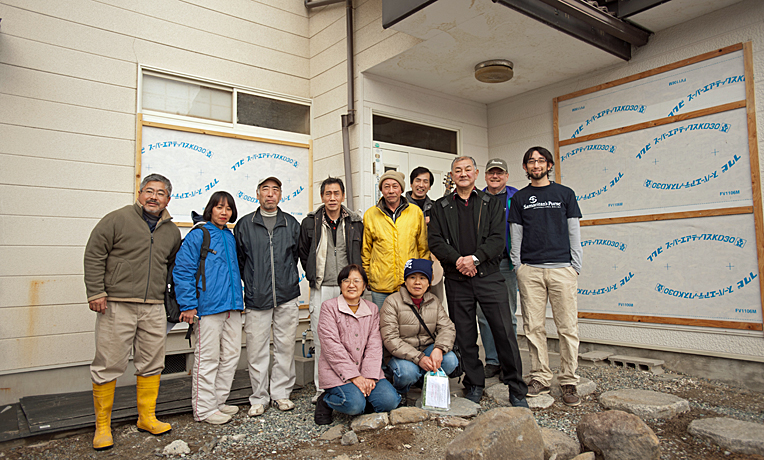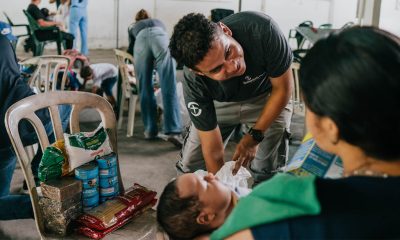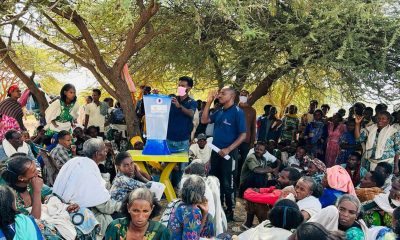Relief work in the aftermath of the tsunami is over, but Samaritan’s Purse leaves behind a network of churches committed to reaching their countrymen with the Gospel
Samaritan’s Purse has closed its projects office in Japan, but partners equipped through our ministry over the past two and a half years are stronger than ever and continue to work together to reach their neighbors for Christ.
Shortly after the 9.0-magnitude earthquake of March 11, 2011, Samaritan’s Purse sent 93 tons of relief supplies to Japan for displaced victims. Within 10 days, a warehouse was set up in Sendai, Miyagi Prefecture, which soon became a hub for churches and Christian volunteers to obtain resources and information. Emergency relief items were distributed by dozens of partners across the disaster zone.
Later, as bases were established, Samaritan’s Purse hosted more than 7,500 volunteers who provided over 185,000 hours of work in the wake of the earthquake, tsunami, and nuclear disaster. A total of 460 mud-outs were completed and 509 homes were reconstructed.

Pastor Otomo founded the Miyagi Mission Network, which benefited from the involvement of Samaritan’s Purse.
Today, you can see the homes, church buildings, and storage facilities, all testifying to the efforts of thousands. Yet, some of what Samaritan’s Purse leaves behind in Japan will last much longer, though it cannot be easily measured.
Network Cooperation
Before the triple disaster, interdenominational church networks did not exist in Tohoku in the same way they do now. (Tohoku is the six-prefecture region of northeastern Japan intensely affected by the tsunami.) The growth of these networks can be attributed in a significant way to Samaritan’s Purse, which became a unifying and catalyzing agent among the region’s Christian community.
To encourage local cooperation, our staff hosted monthly church gatherings in various regions. In addition, Samaritan’s Purse facilitated the use of volunteers, provided financial support for community outreach events, sponsored network evangelism and discipleship conferences and trainings, and provided Christian literature.
By offering a platform for churches to come together, Samaritan’s Purse helped increase the membership, reach, and effectiveness of organizations like the Miyagi Mission Network. These local Japanese groups continue to reach people for Christ.

Pastor Otomo leads in prayer during a home dedication event in 2012.
Centers for Outreach
Ishinomaki Christian Center (ICC) and Kesennuma Hope Center (KHC) are even more directly the legacy of Samaritan’s Purse. Both centers are headed by Japanese nationals who happen to be former Samaritan’s Purse staff.

The Kesennuma Hope Center continues to be a beacon of light for its community.
KHC started as one of our bases of operations (November 2011-November 2012) and is now shared by two evangelical ministries. The building, which Samaritan’s Purse helped rehabilitate after the tsunami, is now used as a volunteer center, café-outreach, dormitory for staff members, and site for multiple community services. Several people have been baptized recently as a result of the center’s outreach.
KHC also serves as the Samaritan’s Purse center for continuing Operation Christmas Child activities in Japan. The Pacific country is now a sending nation for the gift-filled shoeboxes, each of which represents a gospel opportunity in another part of the world.

Pastor Dave Kazama presents a Bible to a resident of Kesennuma living in a temporary housing unit.
“God is gracious for the people of Kesennuma,” said Pastor David Kazama, KHC director. “People here [are] still struggling [in] their life for recovery from the calamity. Please continue to pray for us.”






